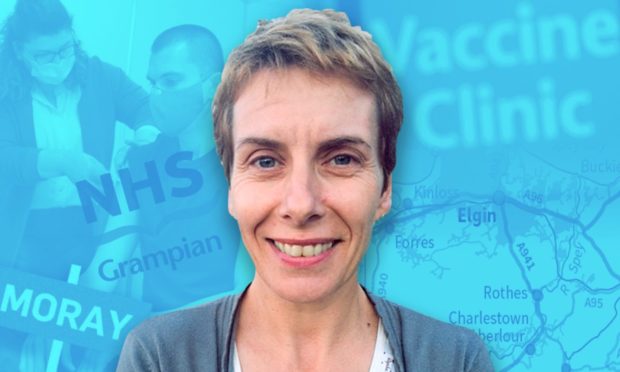NHS Grampian’s head of health intelligence has said it is unlikely that Covid cases will reduce unless stronger measures are put in place.
Jillian Evans discussed the increase in cases across the country and said that Scotland cannot solely rely on the vaccination programme to improve the situation.
Speaking on BBC’s Good Morning Scotland, she said: “Numbers are slowly starting to increase and what you’ve got to look at is where that increase is happening.
“It’s in younger people now, especially in primary school age children, and some small increases in working age adults, between 40 and 50.
“We are still seeing very high levels of people in hospital, although that too is starting to reduce. What’s interesting there is the number of admissions for people over 80 is starting to decrease.
“That’s good news and indicates to me, or suggests at least at this early stage, that the booster vaccination may be having an impact.
“But the problem is, is it enough to reverse the situation, is it enough to start reducing the number of cases, just going along as we are?
“And I think arguably, what we’re hearing is probably not. It’s unlikely things will improve unless stronger measures are put in place. You can’t just rely on the vaccination and the booster campaign alone.”
Earlier this week, Ms Evans said the increased risk moving into winter paired with pressure on health and social care would cause “unpredictable” disruption.
Booster roll-out is ‘going very well’
Newly reported cases are among vaccinated and unvaccinated people, although those in hospital with Covid are three times more likely to have not received the vaccine.
In terms of case numbers, Ms Evans said we cannot “look at things in isolation”.
She continued: “What we’re seeing is that certainly young children, people who are unvaccinated, are the ones that are presenting as cases now. People under 20 and especially kids between the age of five and 11.”
The head of health intelligence also shared that there are “some signs” the booster programme has been effective and said the roll-out is “going very well”.
She explained: “The reduction of cases that we’re seeing now in older people and reduction of older people being admitted to hospital, that’s where the booster programme has started.
“I can’t say that with any certainty, but it would indicate to me that it’s a good sign that the booster is effective.”
Ms Evans suggested the booster vaccine should be rolled out to to younger people next, starting with the 40s and 50s cohort, to keep workplaces going.
